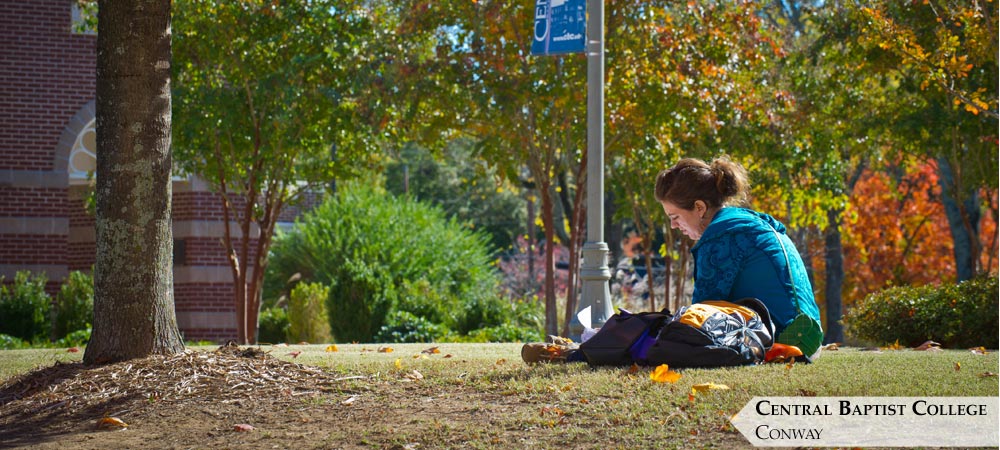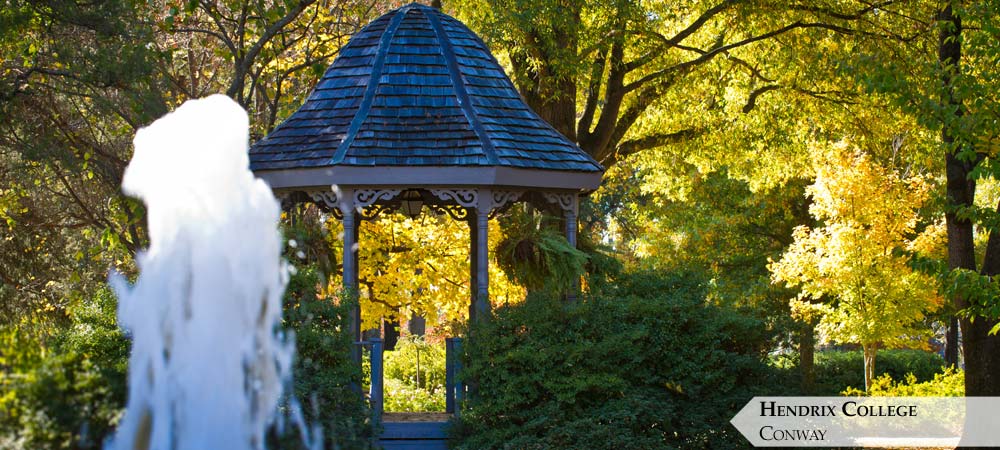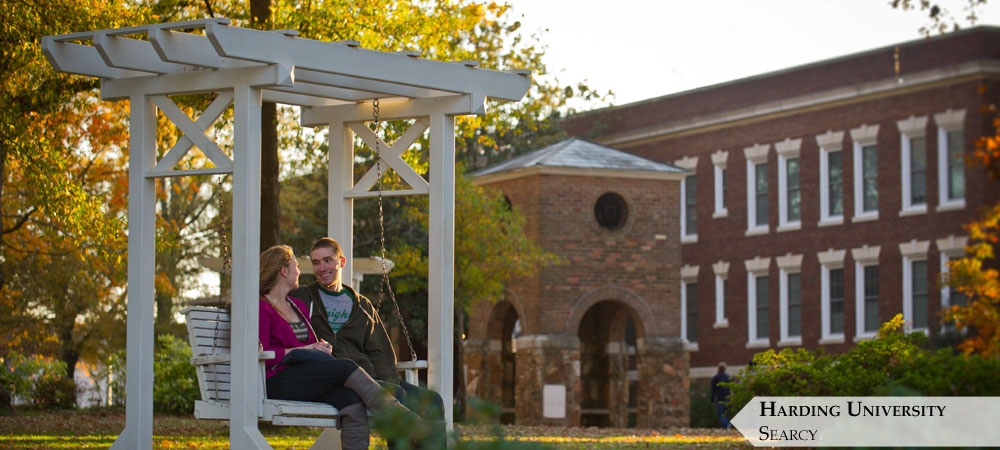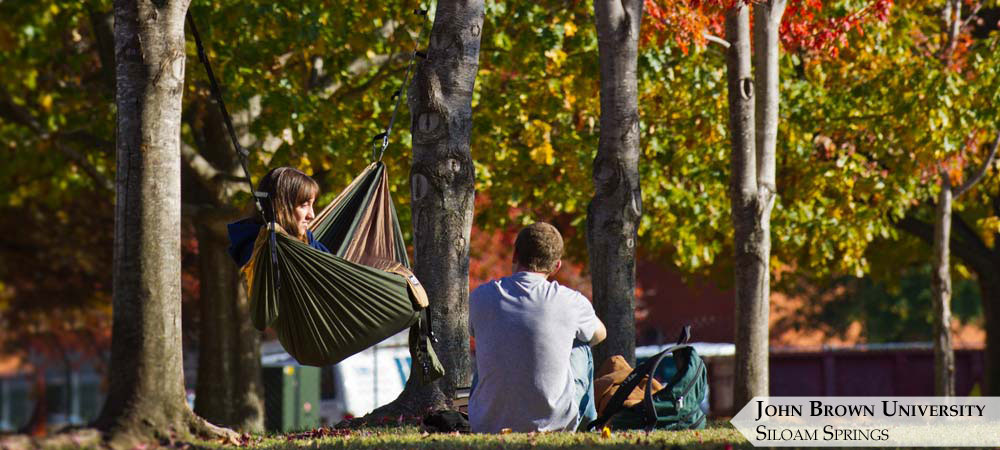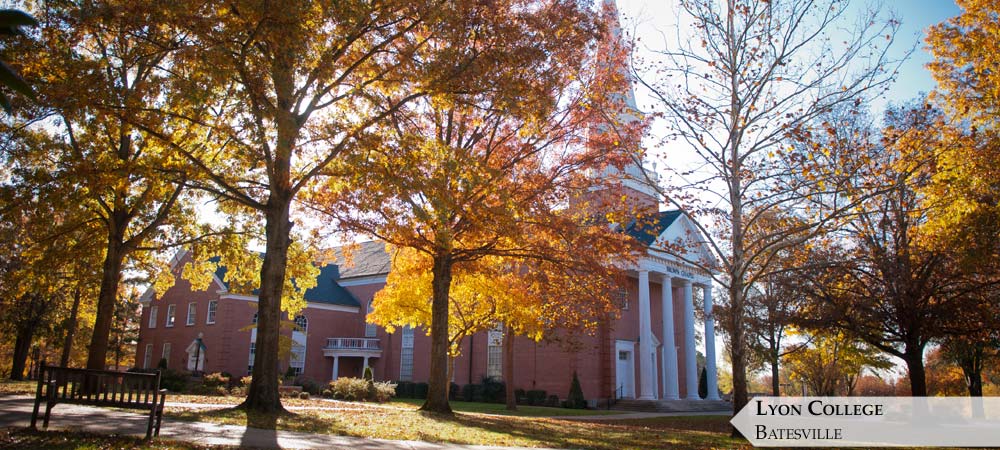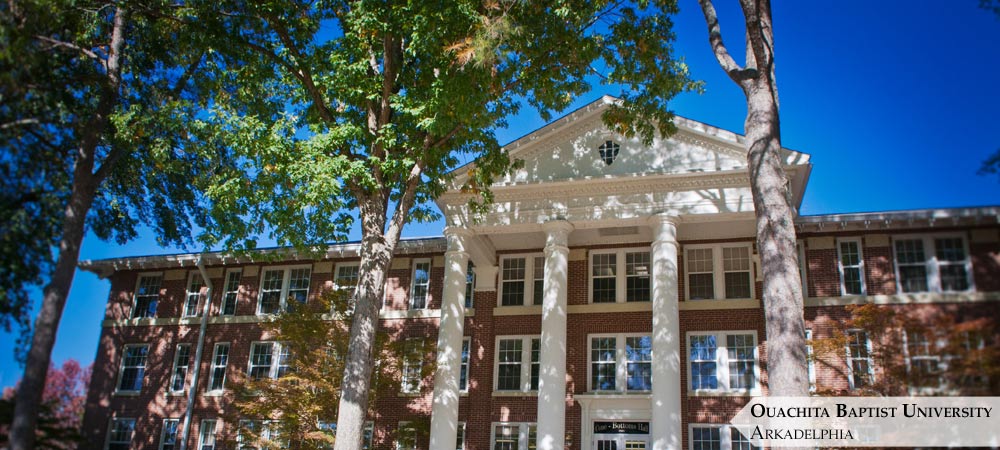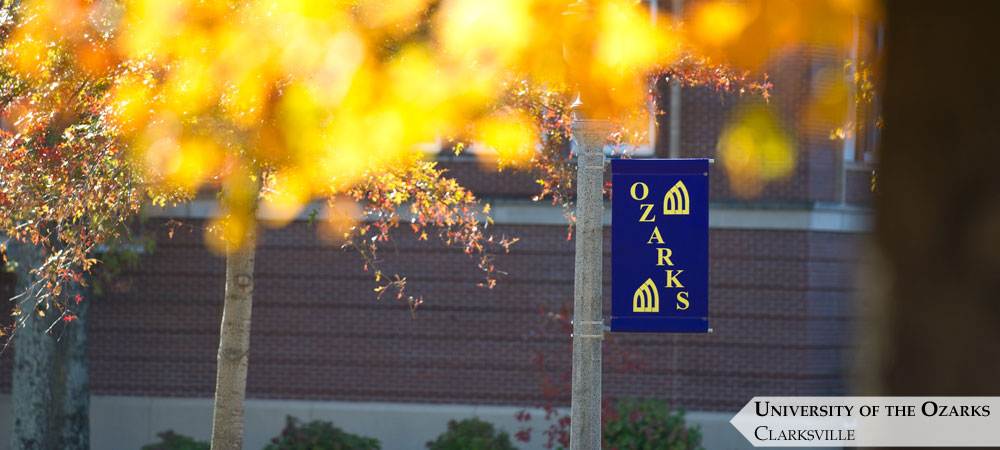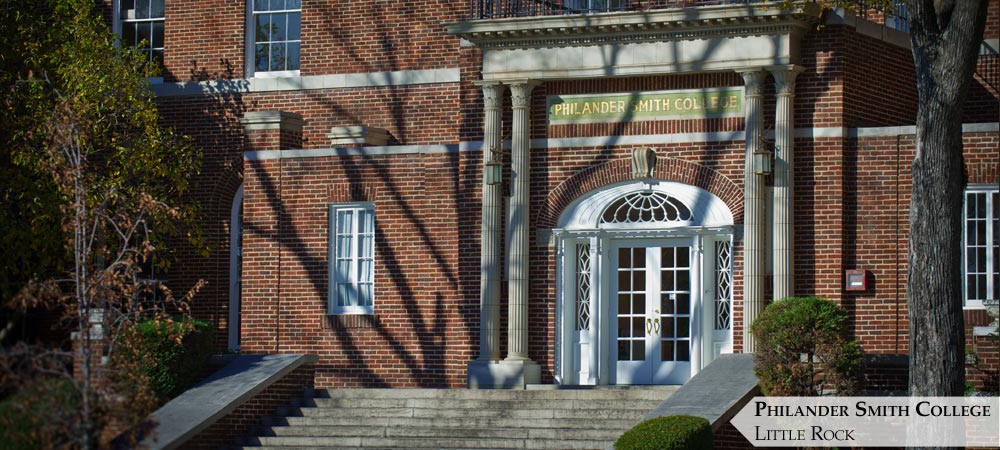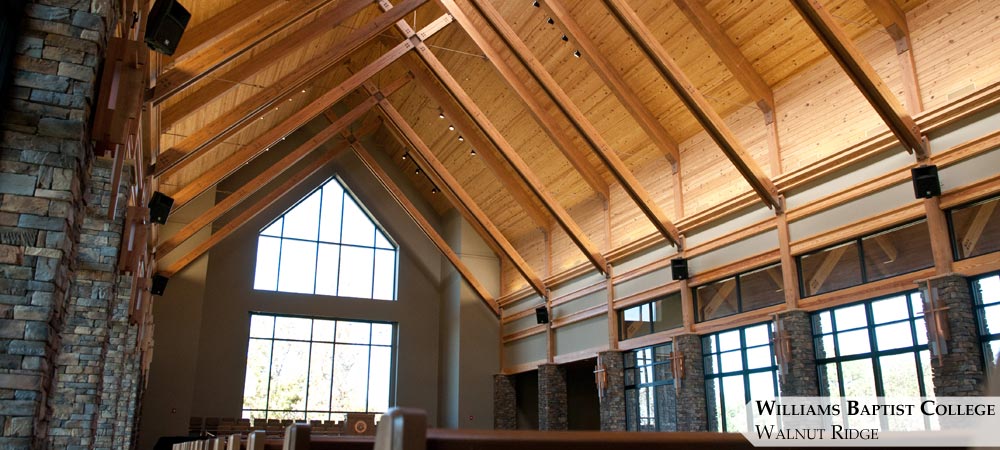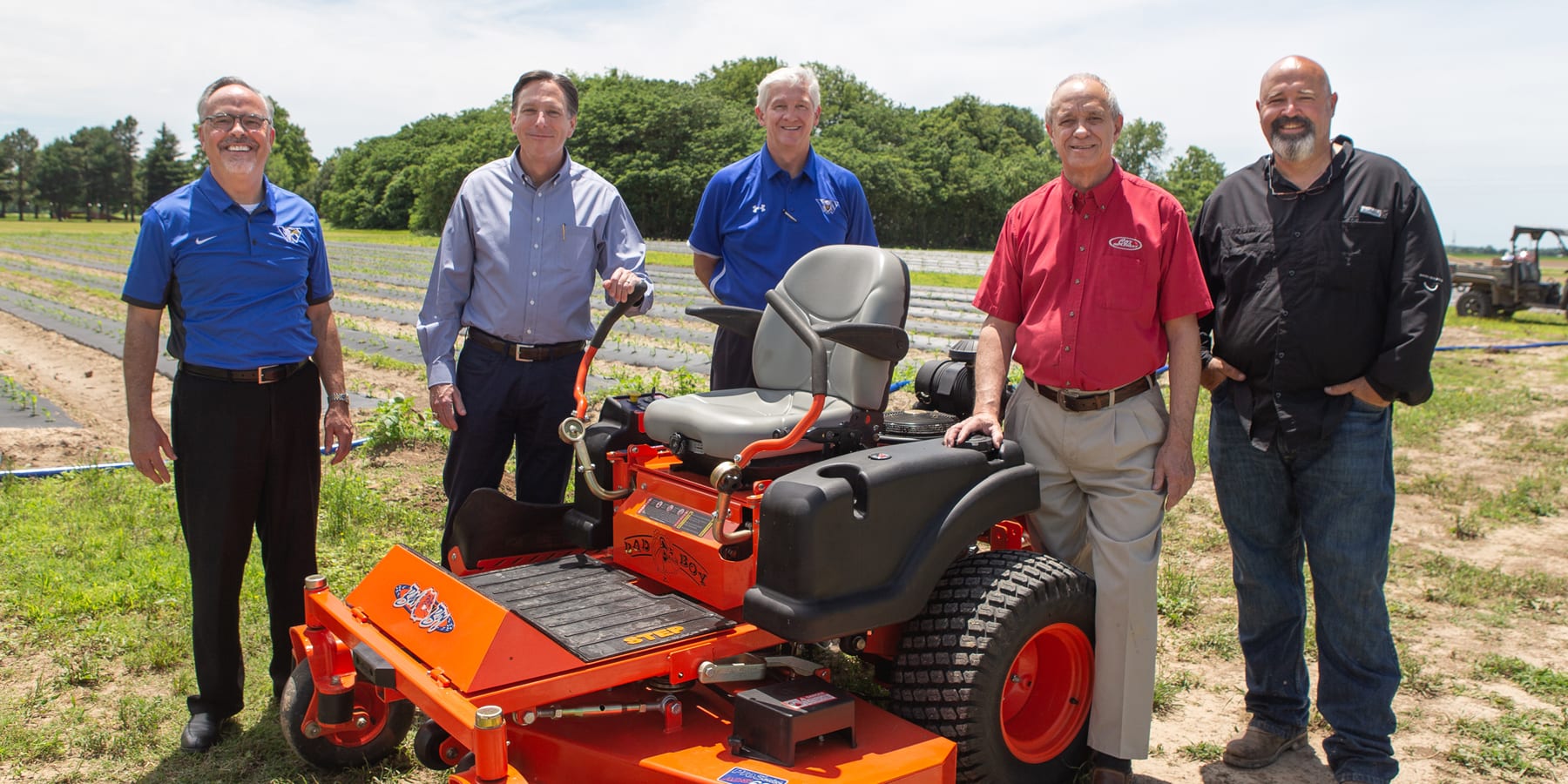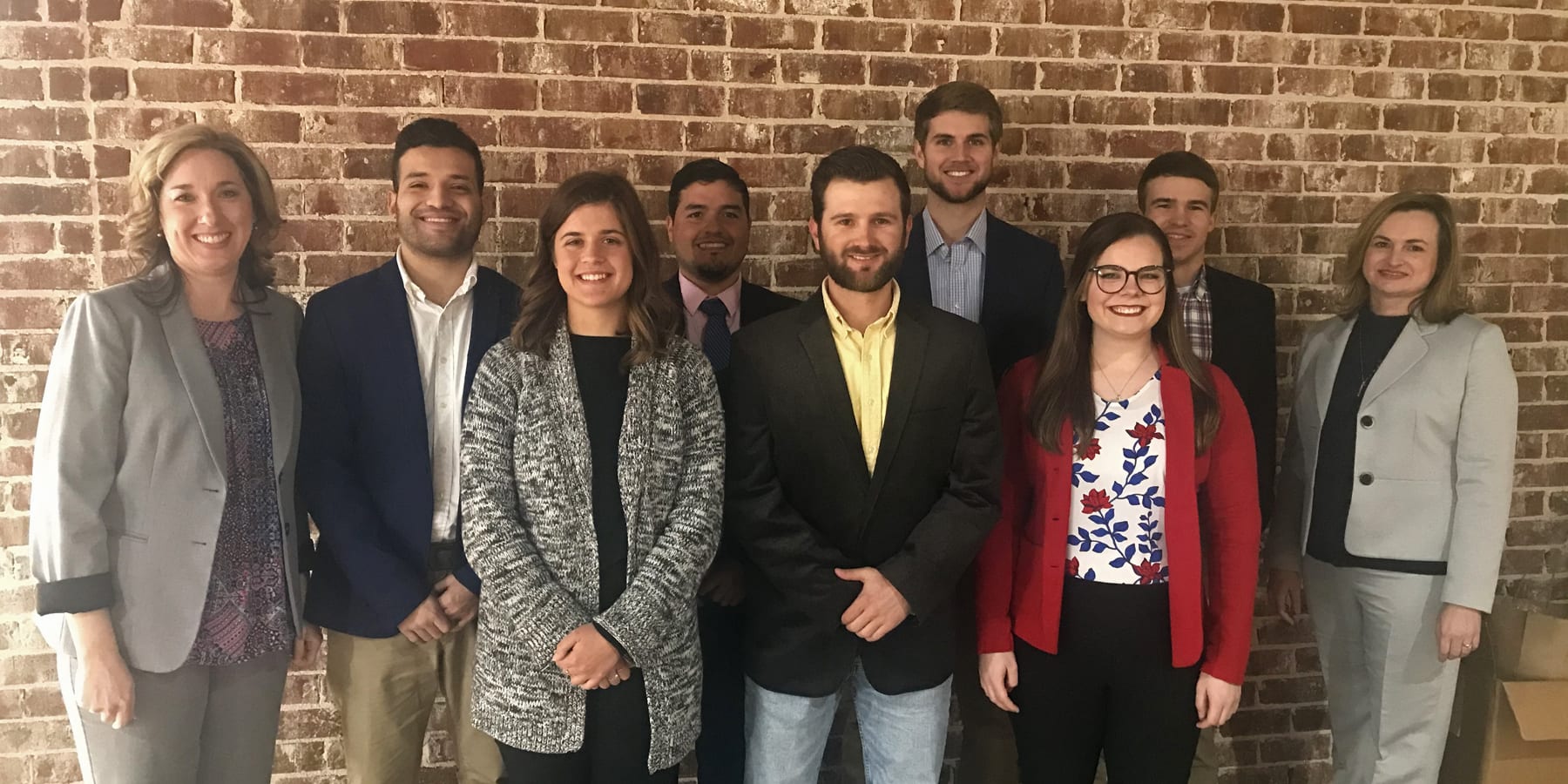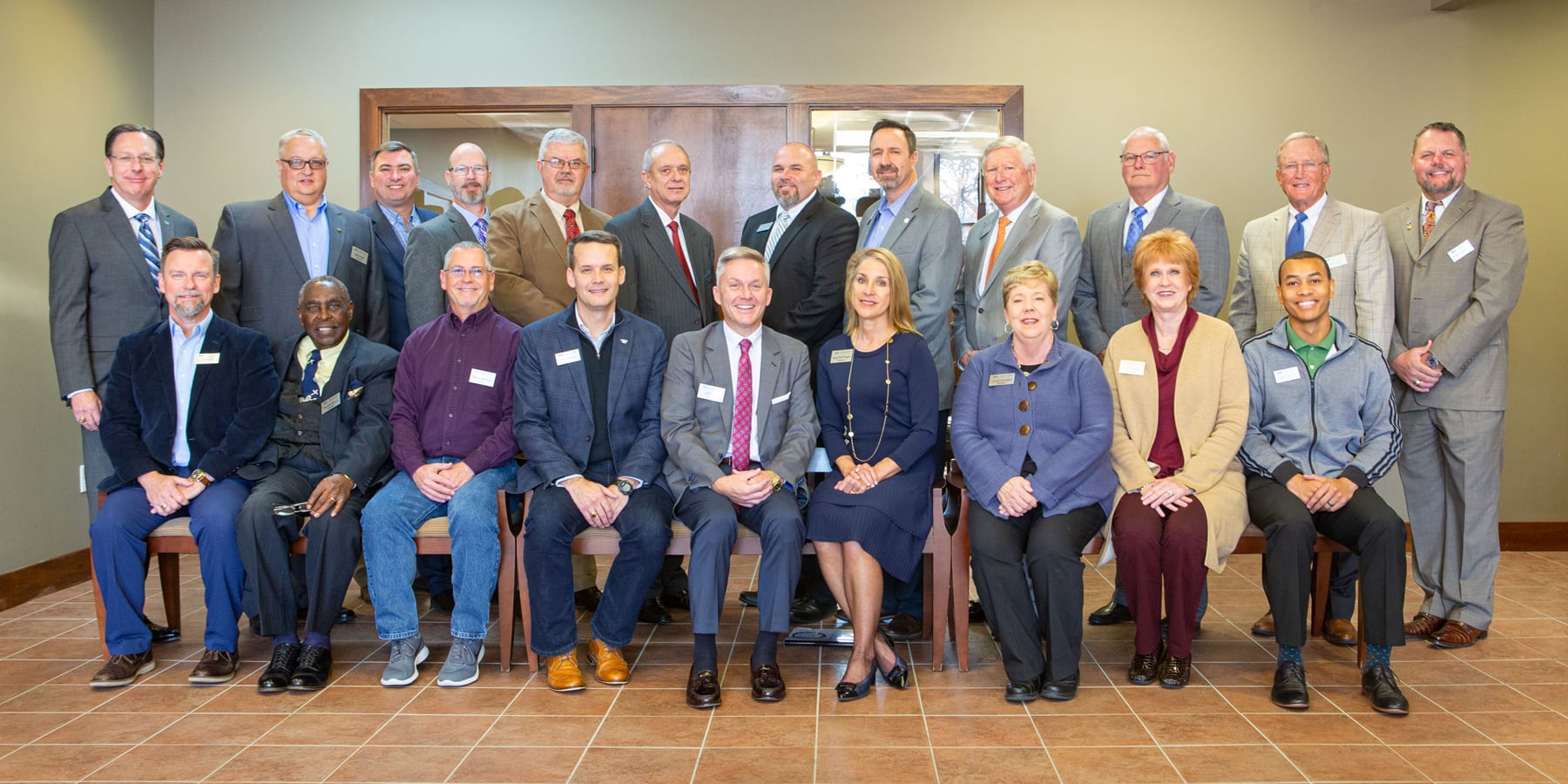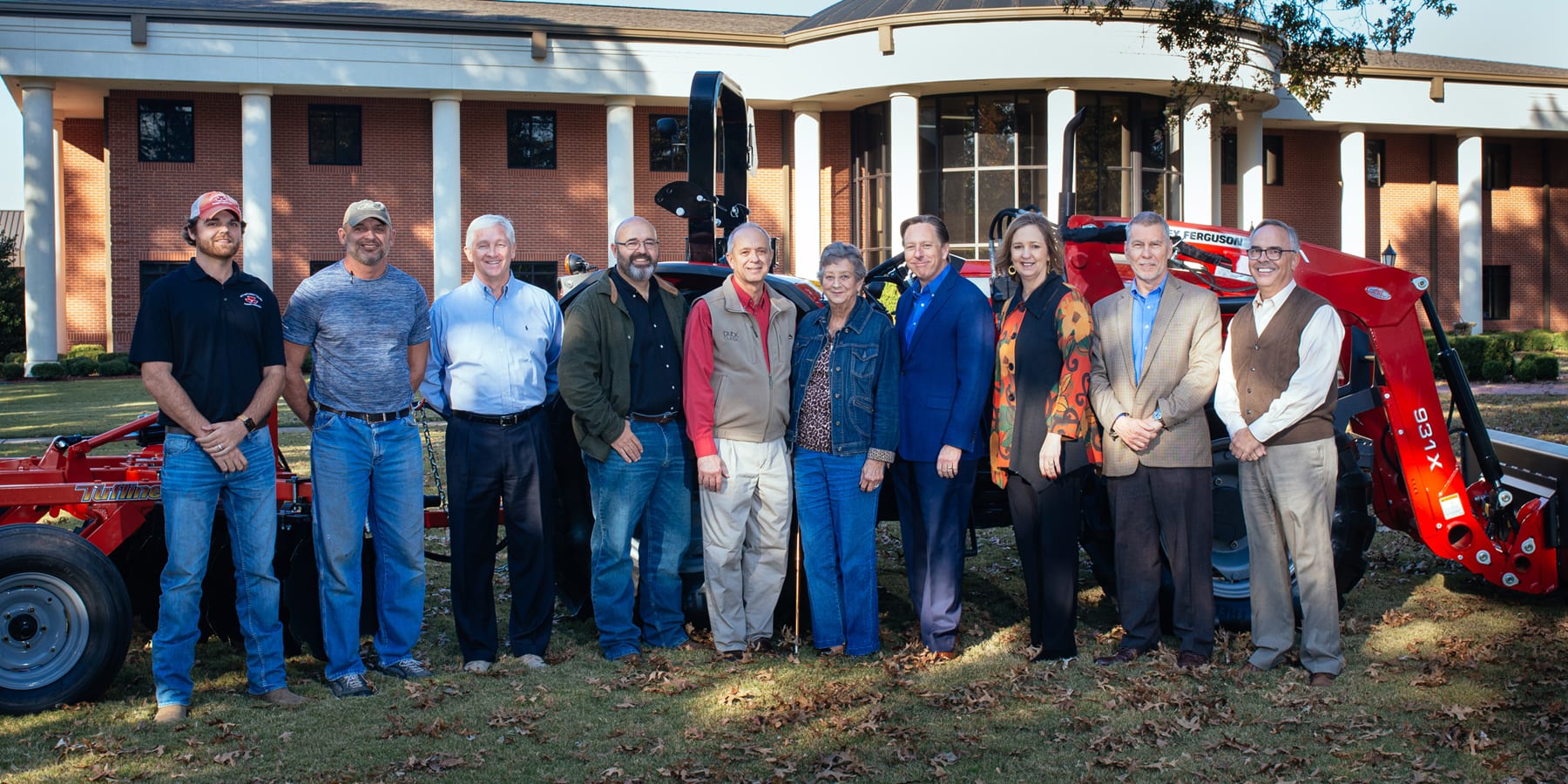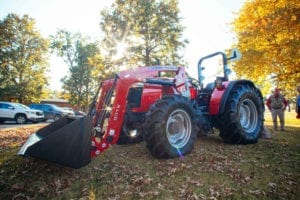A donation to Williams Baptist University in Walnut Ridge will fund the construction of two greenhouses. The $75,000 gift from Tekla Research, Inc., is providing the greenhouses for WBU’s Eagle Farms.
The farm operation is part of the broader Williams Works initiative, which will allow students to work their way through college.

Tekla Research CEO Dave Russell and CFO Beth Russell West, both of Jonesboro, Ark., along with company President Kevin Wilcutt of Fredericksburg, Va., are the major partners in Tekla. They provided funding for the greenhouses in memory of two close relatives, Dannah Russell Jones and Nora Leann Shuman. Dannah Jones was Russell’s daughter and West’s sister, and Nora Shuman was Wilcutt’s granddaughter.
“We’ve been blessed as a company and we wanted to share that with Williams. When I heard about the need for the greenhouses, I thought what a great way for Kevin and myself to provide a memorial for our dear daughter and granddaughter that we lost,” said Russell, who serves as chair of WBU’s Board of Trustees.
Pictured above are Rusell (center) presenting the check to WBU President Dr. Stan Norman (left), along with WBU Vice President for Institutional Advancement Dr. Doug Walker.
Eagle Farms is being developed on the western side of the WBU campus, where fruits and vegetables will be grown, harvested and marketed by students.
“The idea of new life growing and coming from such tragedy is somehow reassuring,” Russell said. “I do think it’s a fitting way for us to honor their memory, and I’m sure their memory will continue to live on even after we’re gone.”
Dave and Deb Russell lost their daughter to a sudden heart attack, while Wilcutt’s granddaughter died of a rare syndrome.
“My wife Peg and I can’t think of a better way to donate this money. Besides educating others to preach the gospel it’s a great way to educate others on the rare cause of Nora’s death, Sudden Unexplained Death of a Child (SUDC),” Wilcutt said.
“She was a healthy 2 ½ year old who went to sleep one afternoon to never wake up again. This is different than SIDS since it can happen to any child up to the age of 20. Unfortunately SUDC does not get the recognition that SIDS does and the research is not funded by the federal government,” he noted.
Russell said he and Wilcutt are excited about the Williams Works initiative and what it represents. Students selected for the program will work 16 hours per week all through the fall and spring semesters, and their tuition and fees will be covered. Those who work fulltime in the summer months will also have their room and board paid, enabling them to graduate debt-free.
“As businessmen who interview and hire new job candidates regularly we know the value of an education that includes work as well as academics. Our best new hires are people that worked their way through school with either work-study for their degree, internships or a wide variety of other jobs. In fact, one of our best entry level hires was a landscaper while in school that is now leading multi-million dollar proposals.
“Too many institutions are turning out graduates and folks with advanced degrees that may understand the concepts but don’t understand how to apply them practically in a work environment. Williams Works and Eagle Farms will give Williams graduates that experience,” Russell commented.
Wilcutt added, “It does a person good to get his/her hands dirty. What a way to get and pay for an education!”
WBU President Norman said the greenhouses will be built on the front side of Eagle Farms and will be used to start plants which will later be transplanted outdoors. The structures will also serve as the entry point for visitors to the farm.
“The greenhouses were a huge need for our burgeoning farm operation, and we can’t thank Tekla Research enough for such a generous gift. Dave and Kevin have captured the vision for the farm and for Williams Works. The memory of their loved ones will live on in a very special way through these structures, and through the lives impacted by the Williams Works initiative,” he said.

